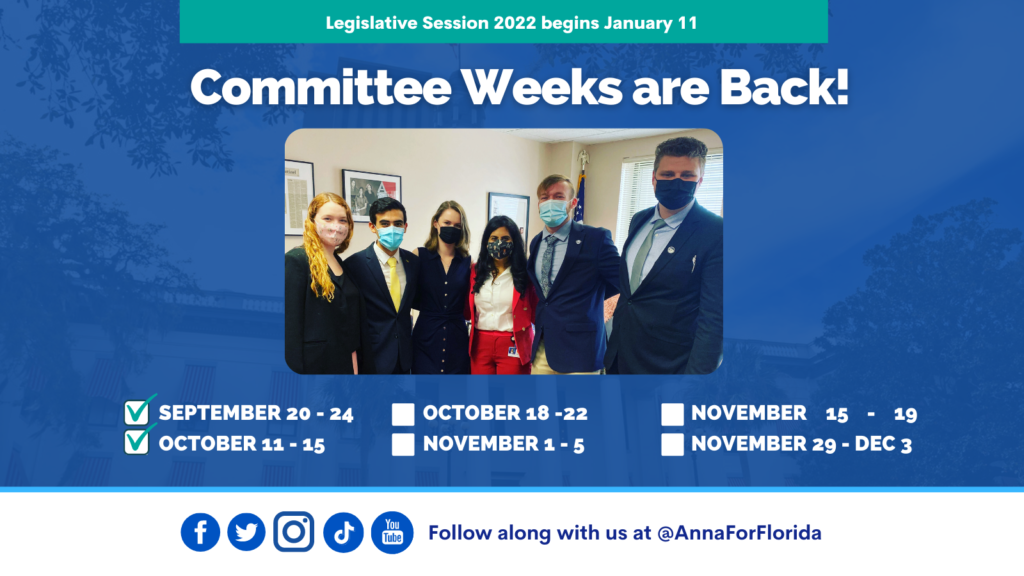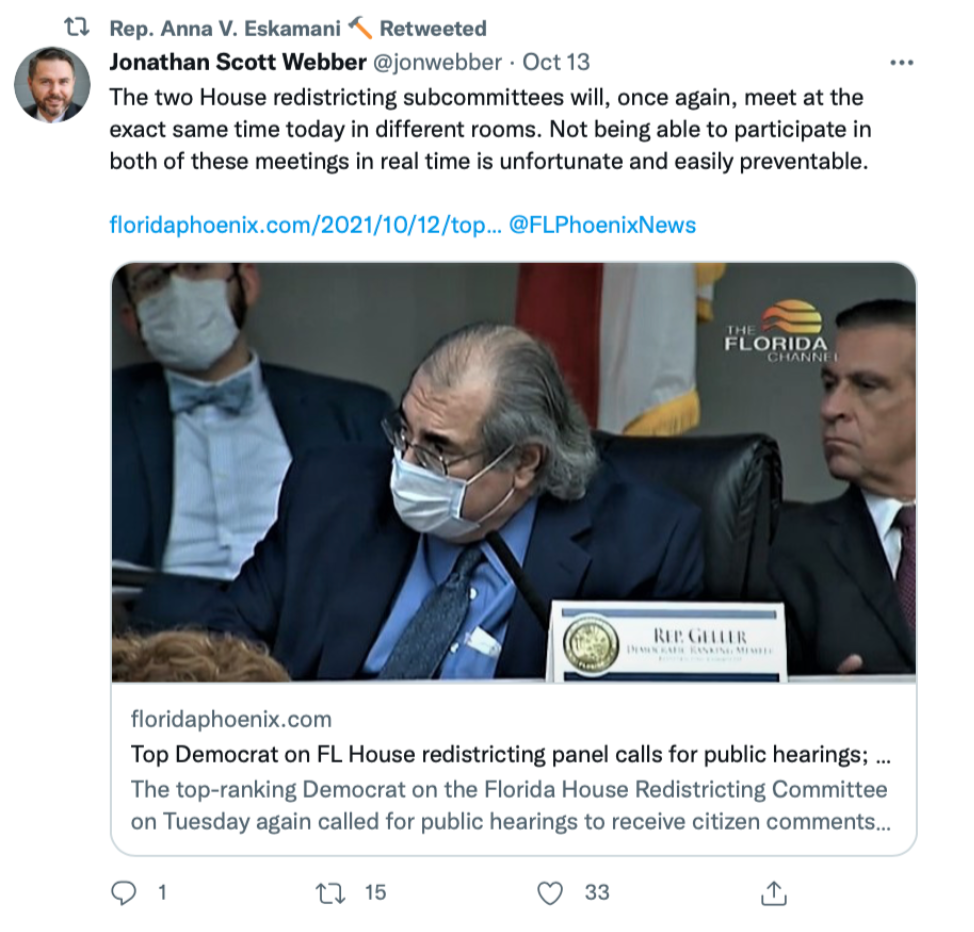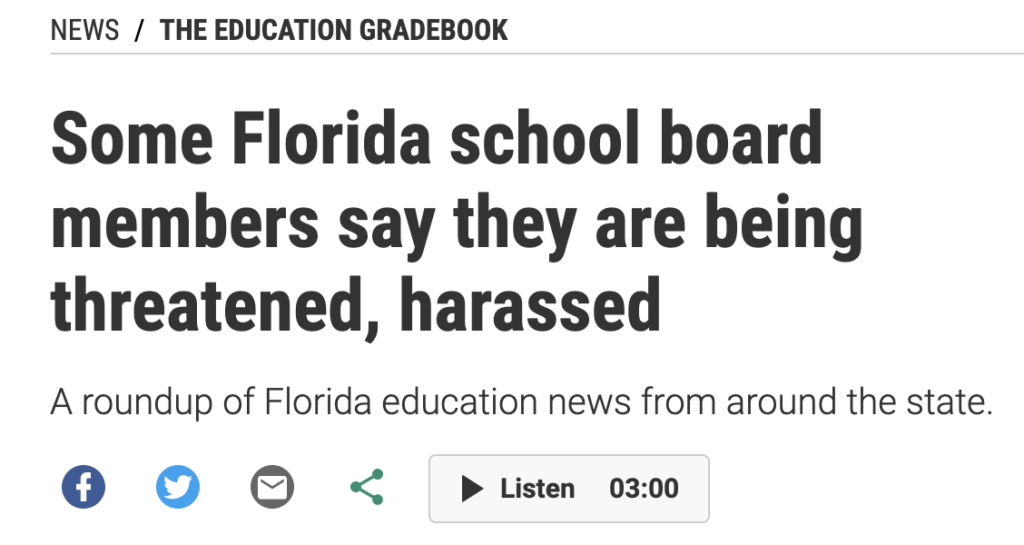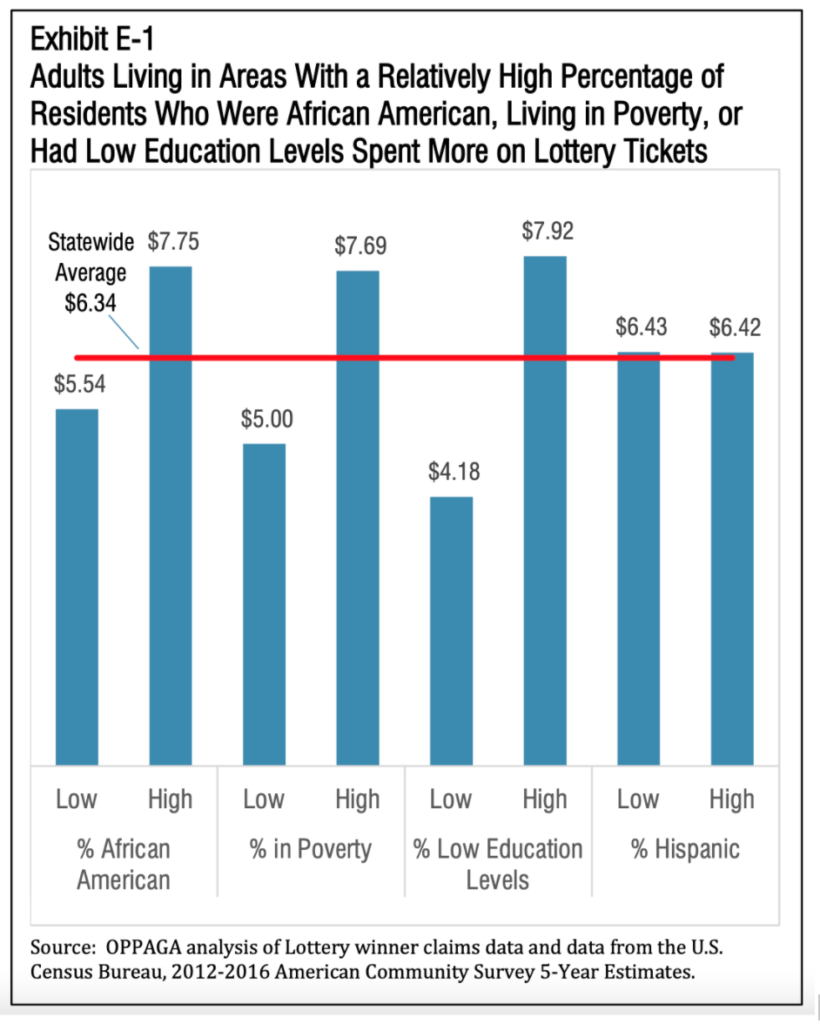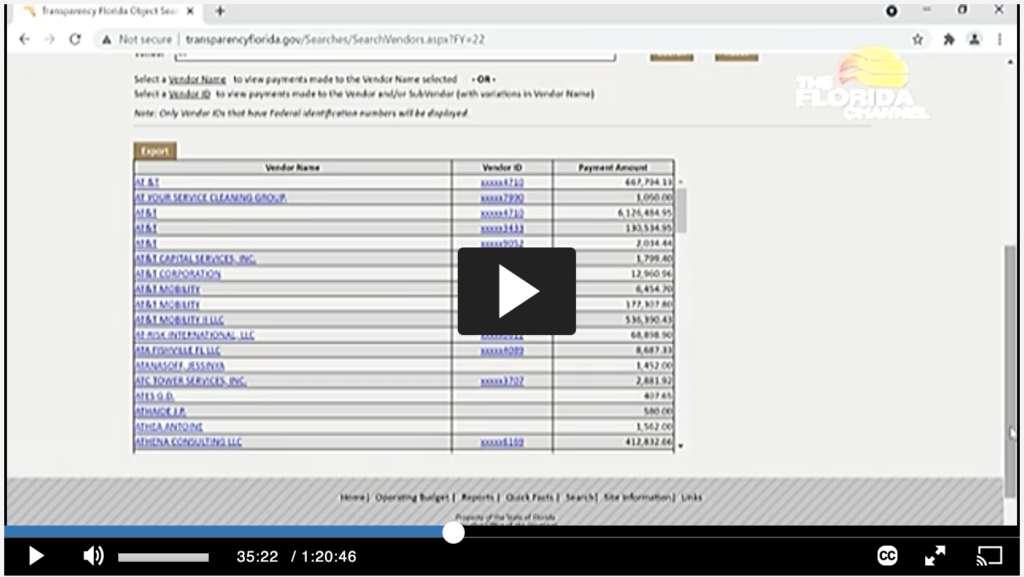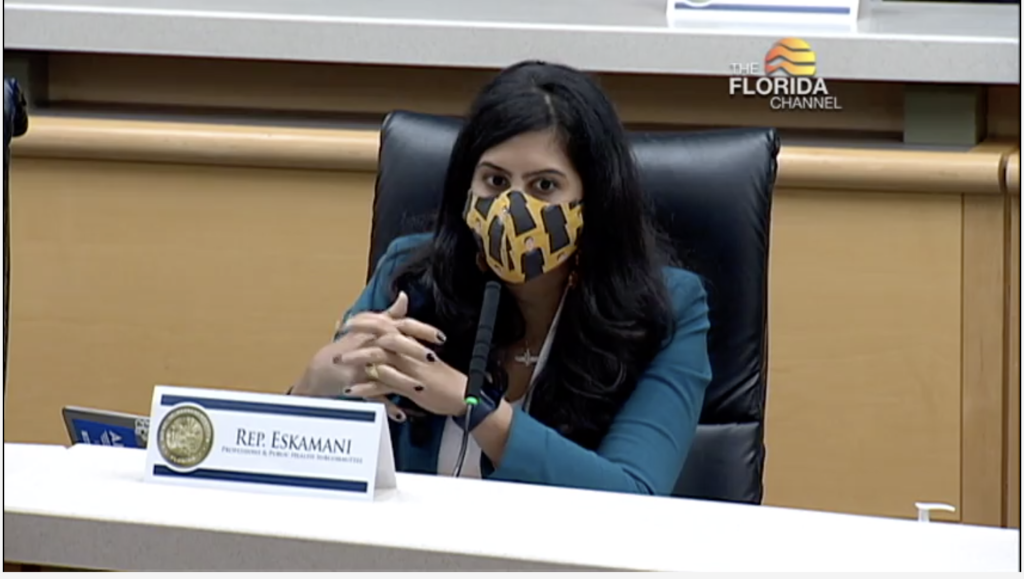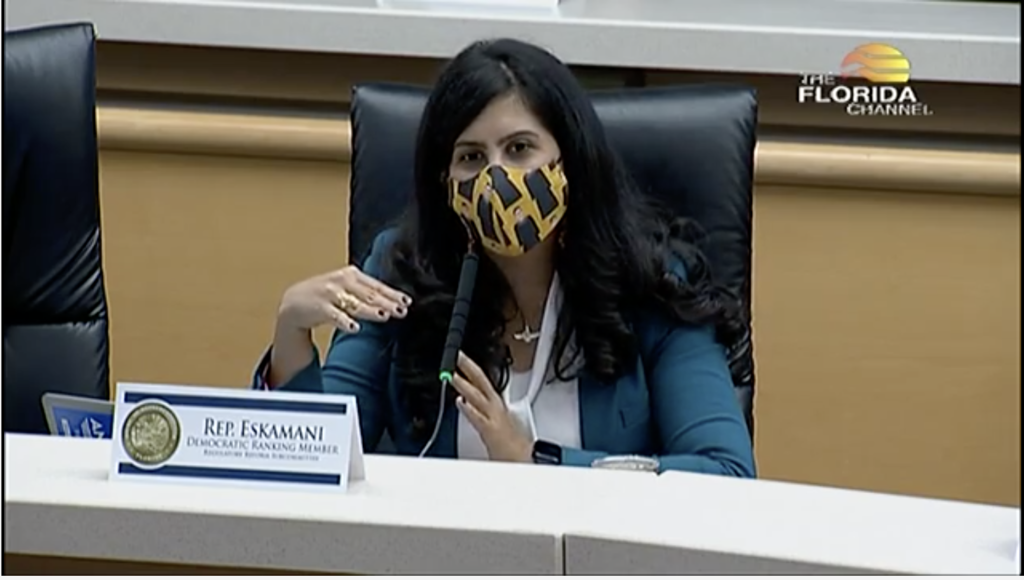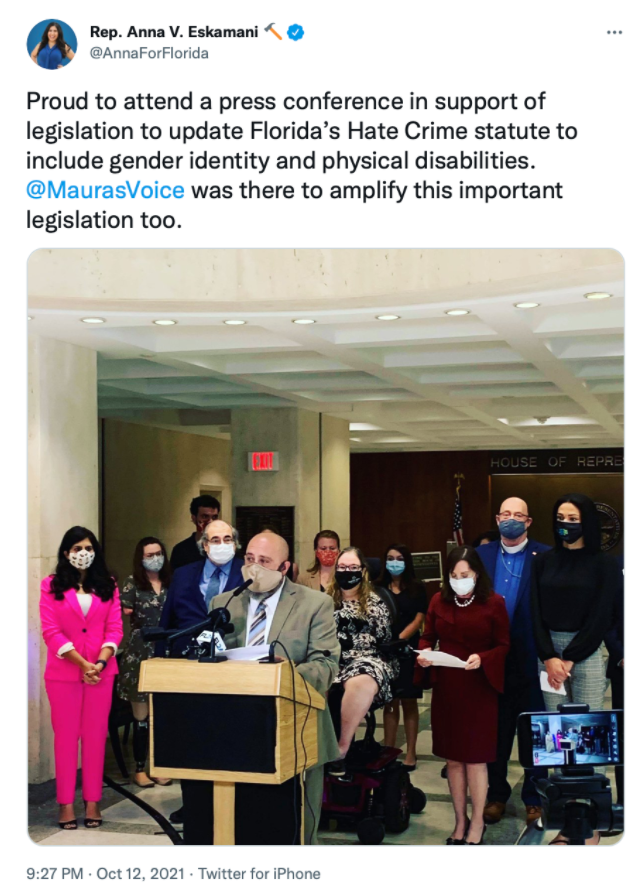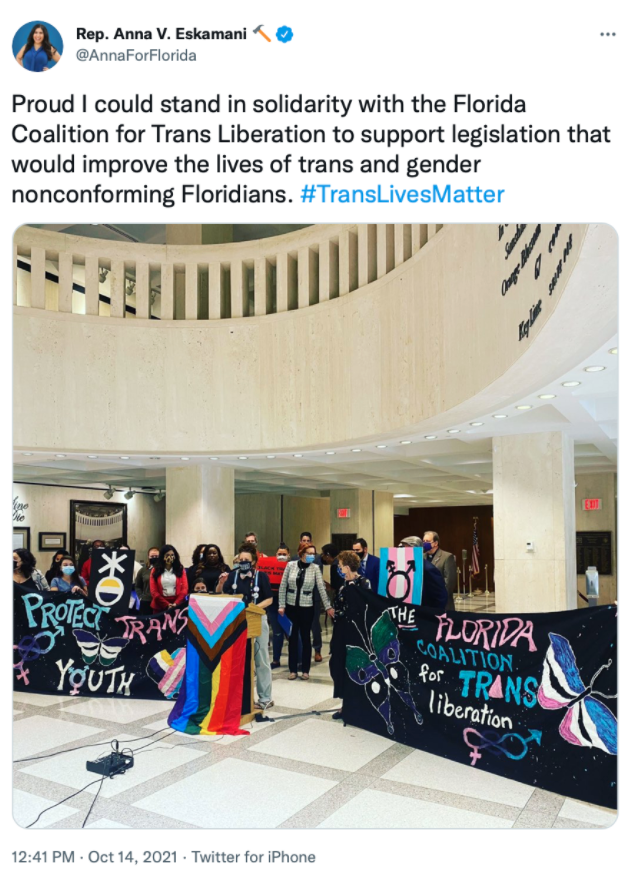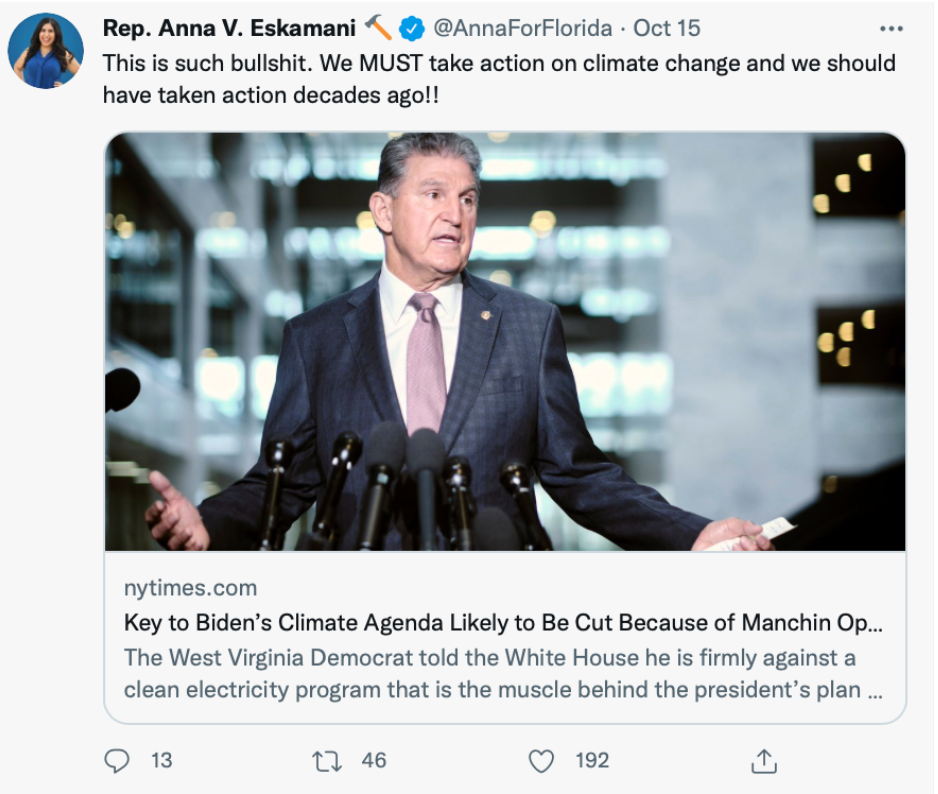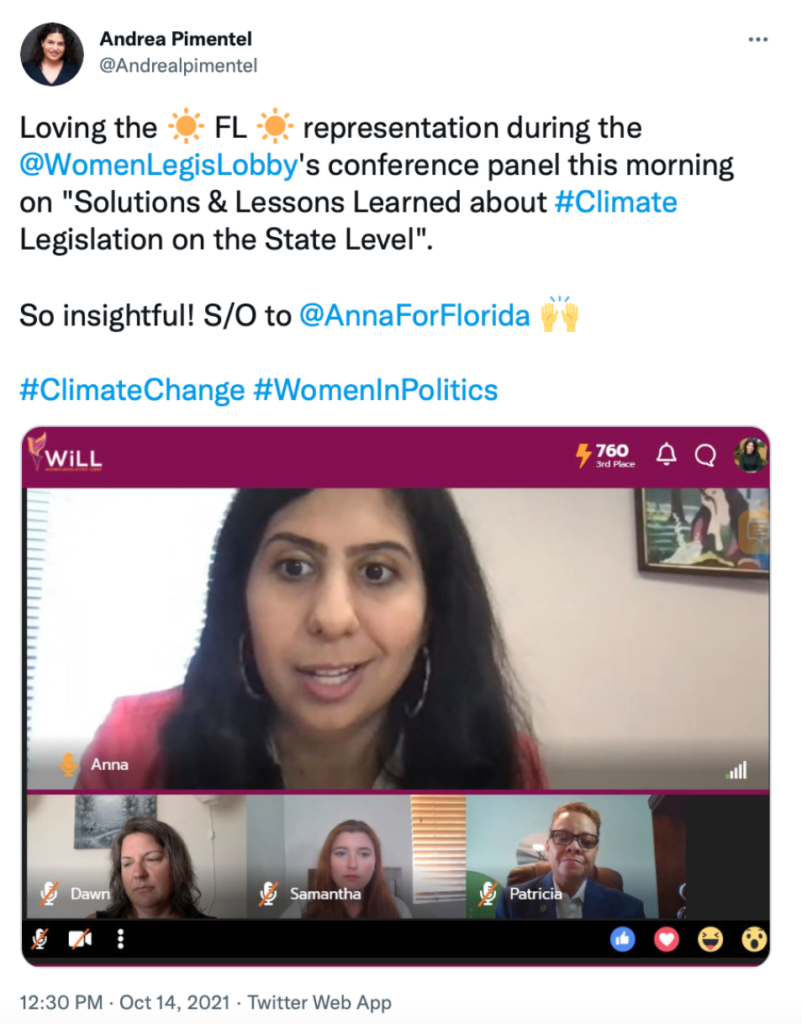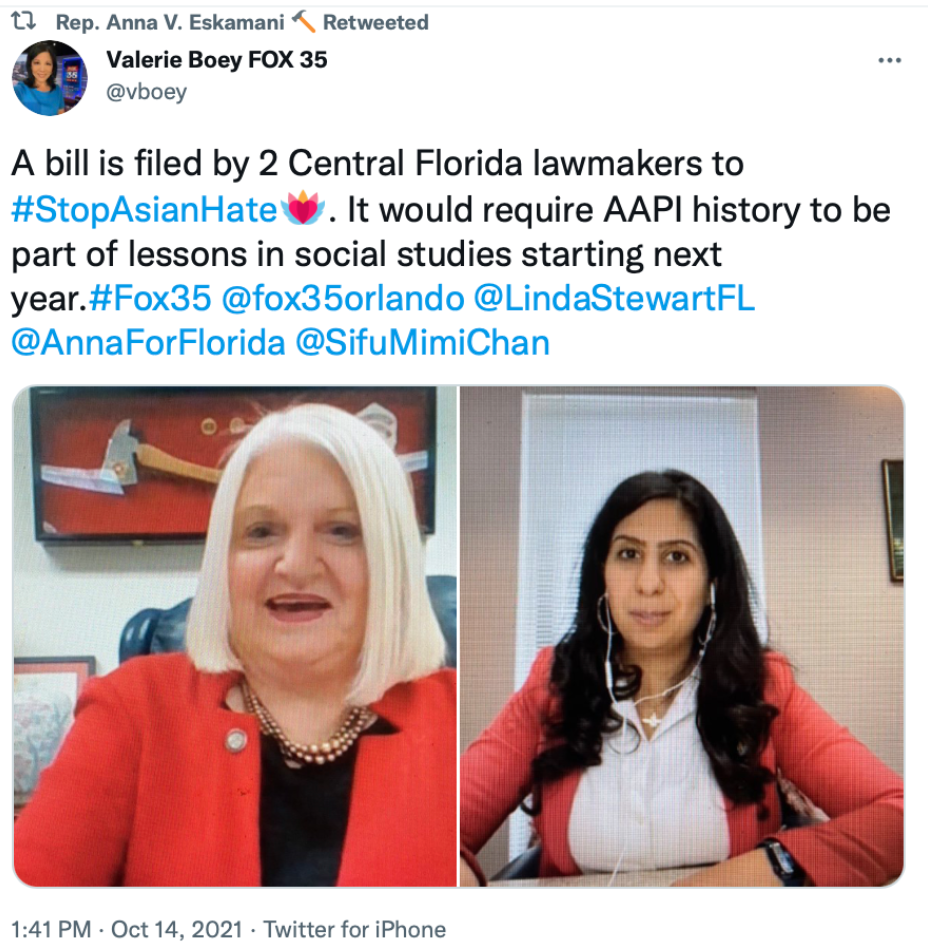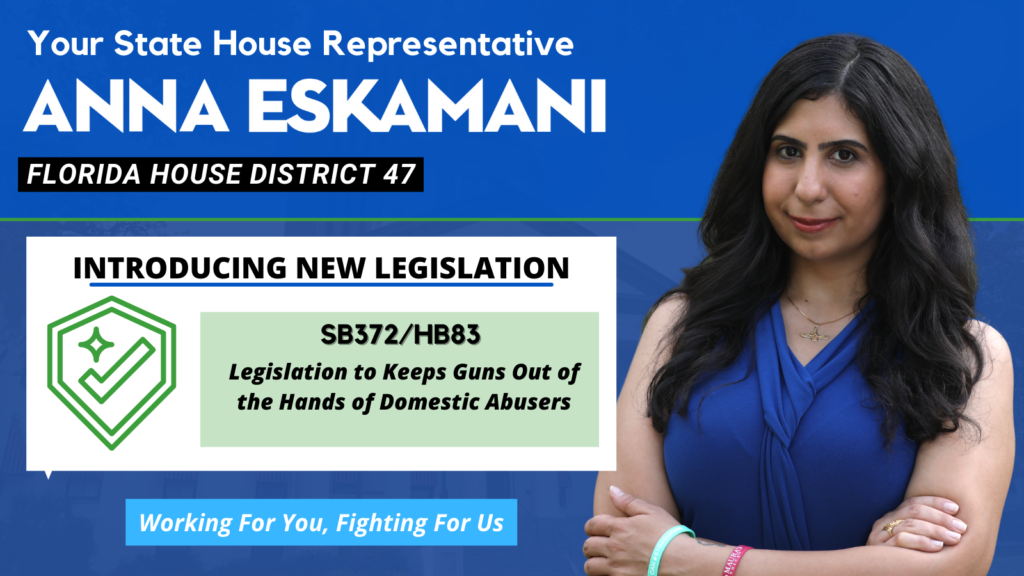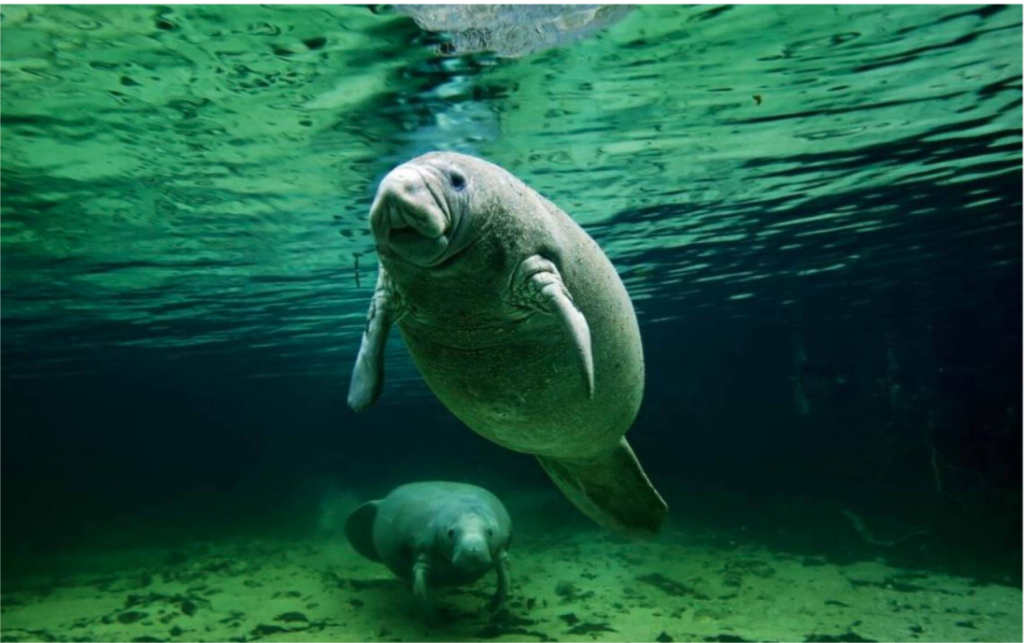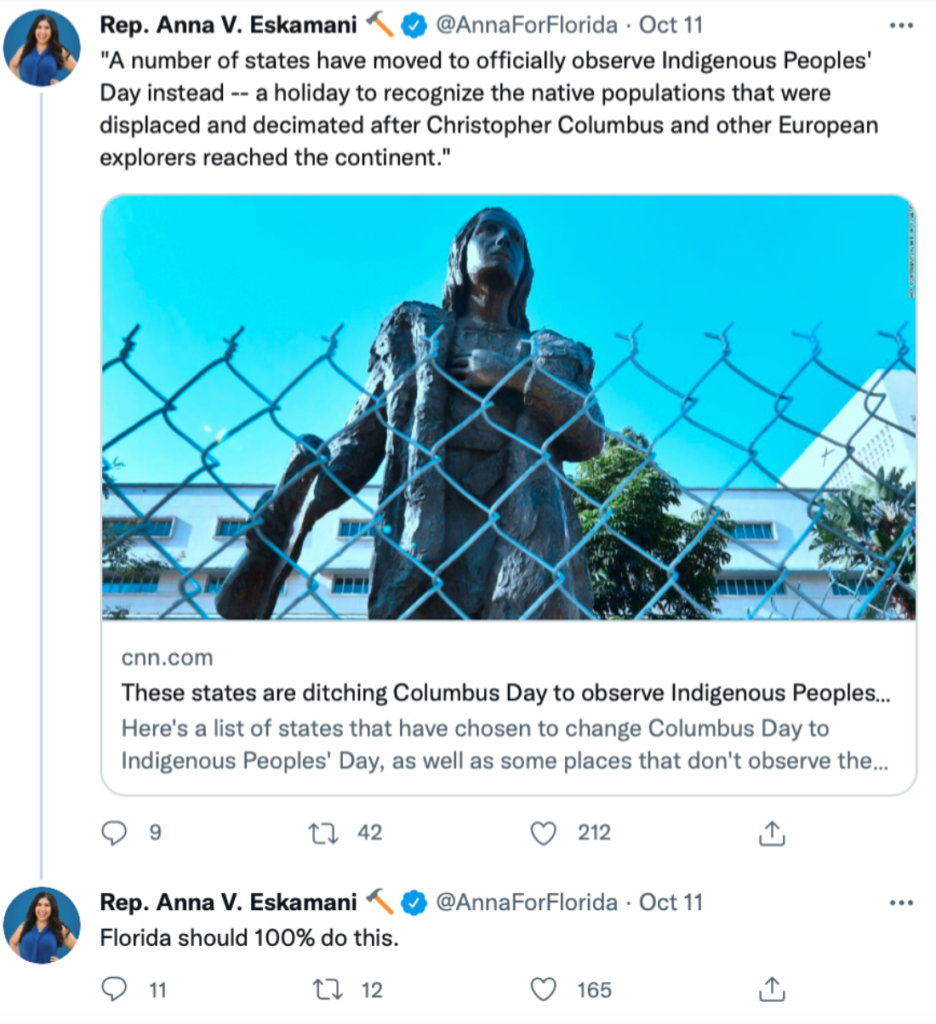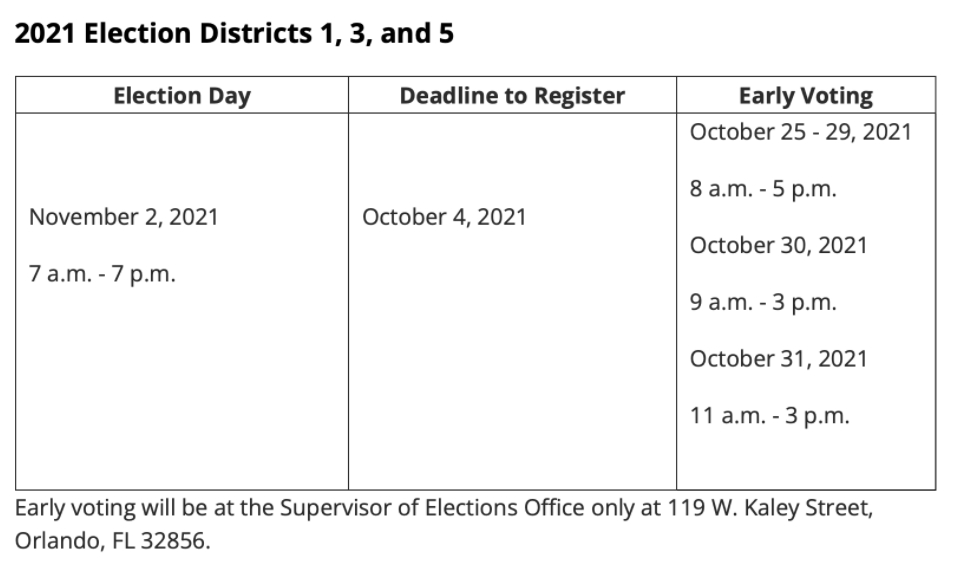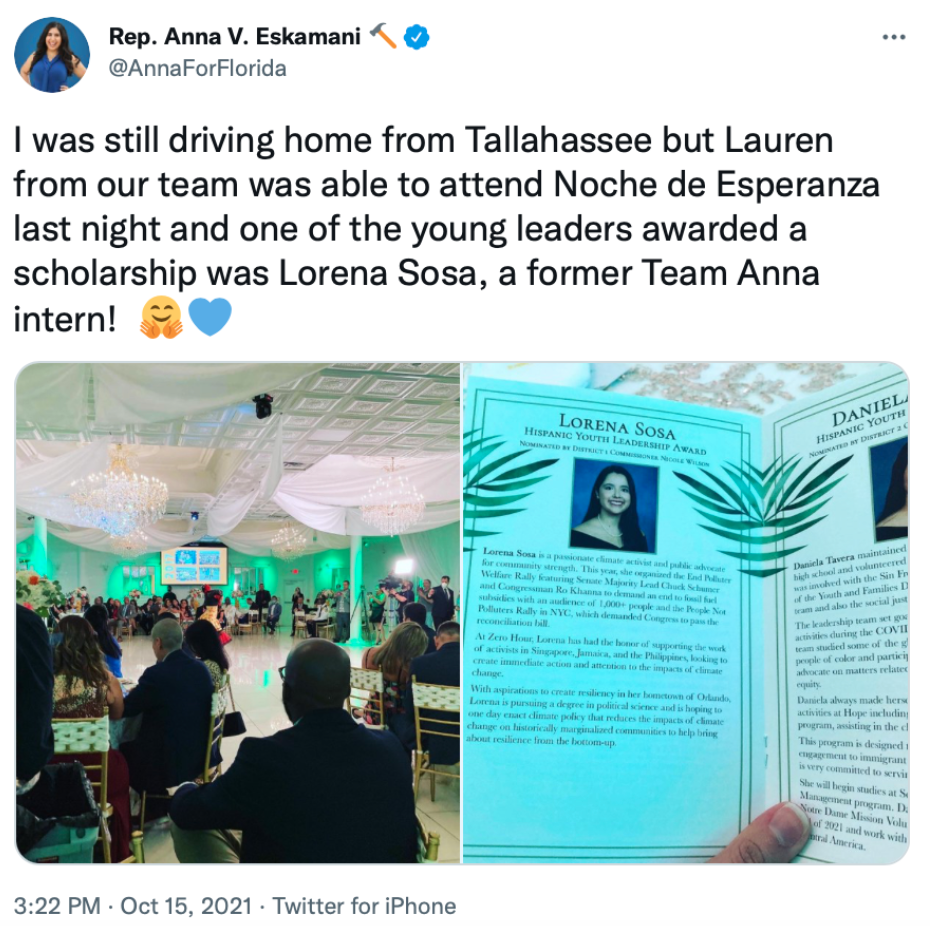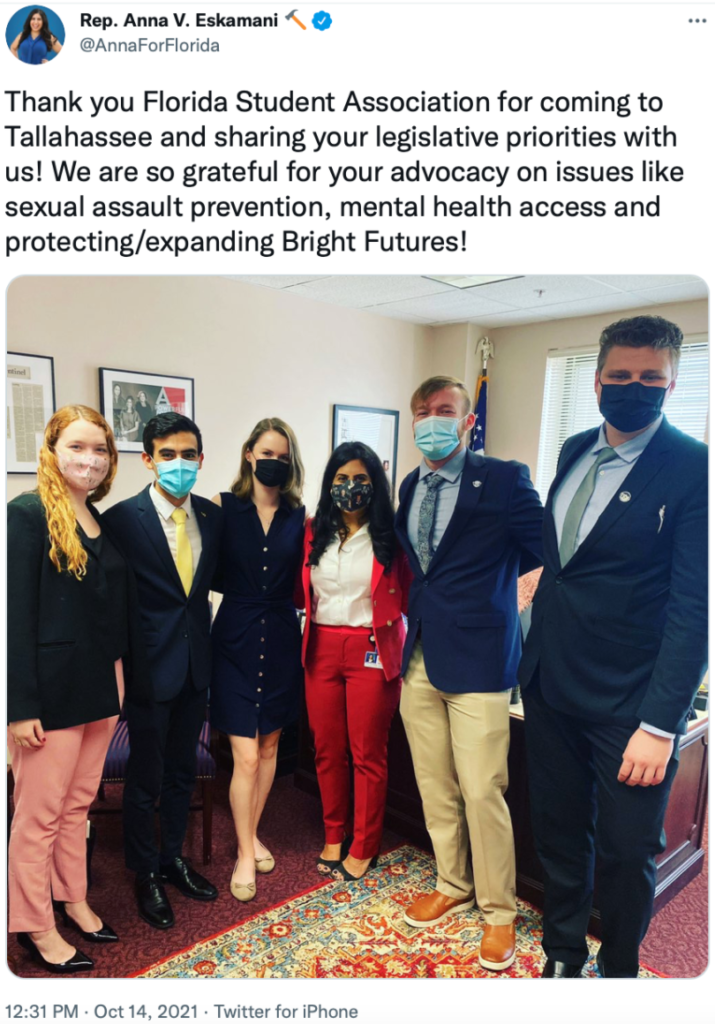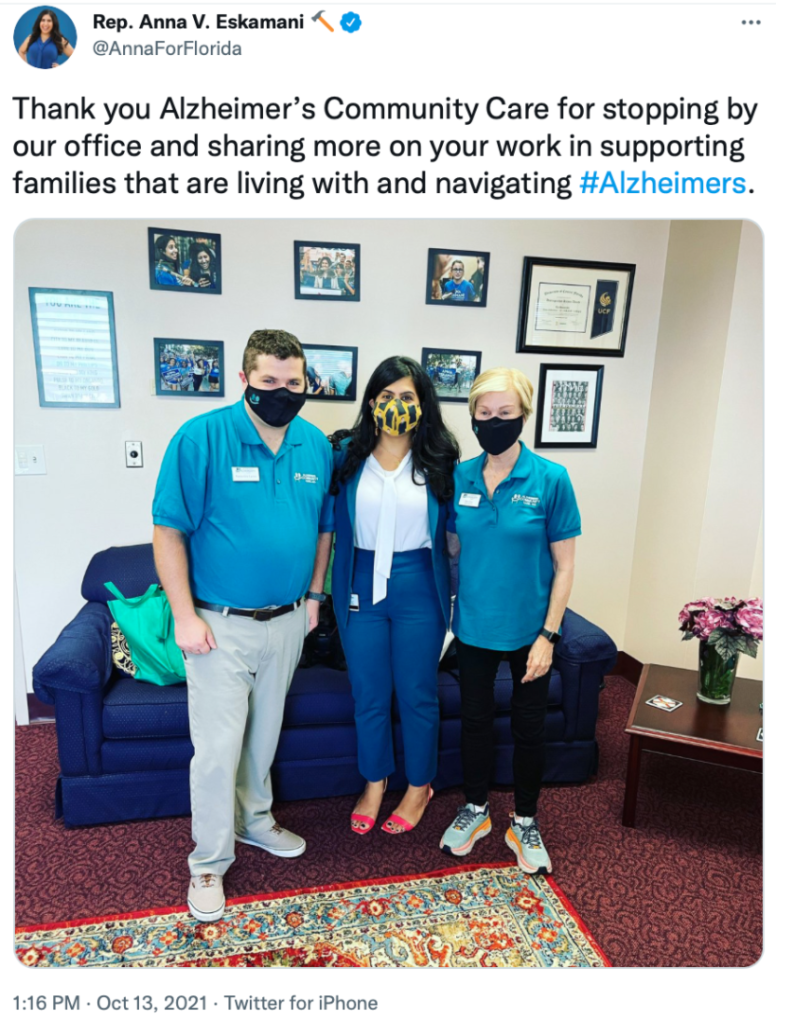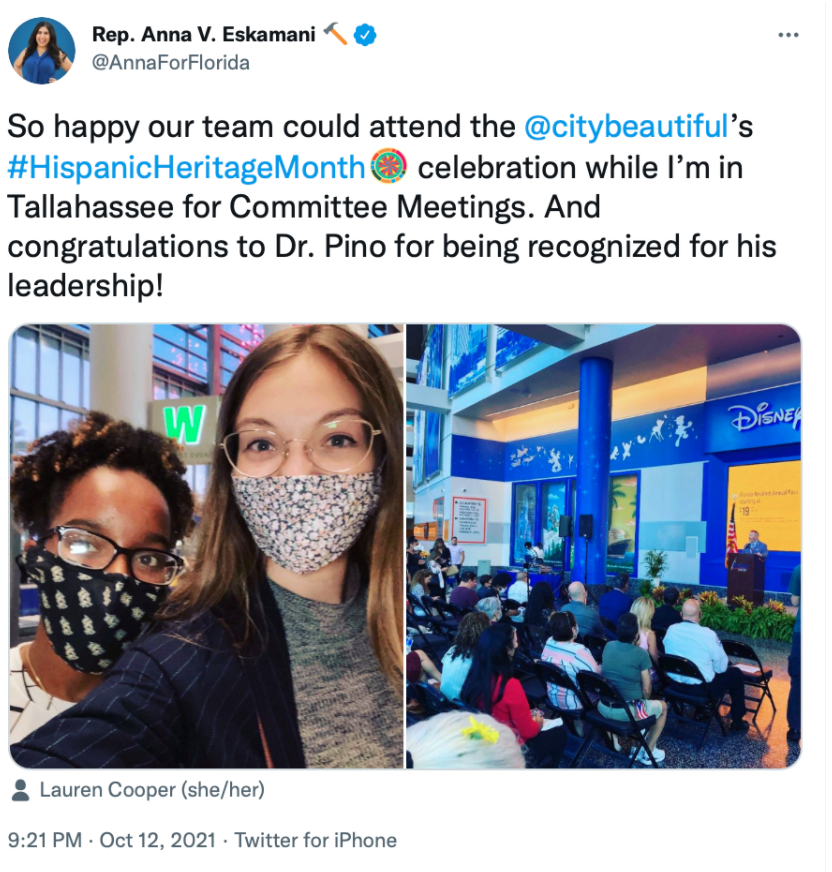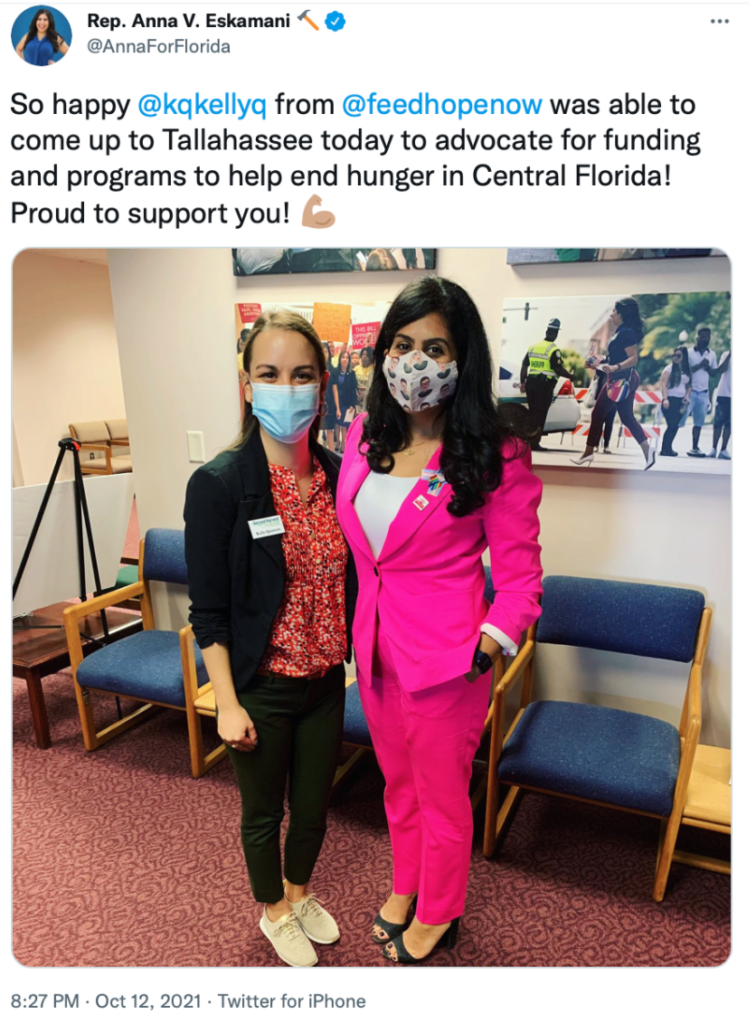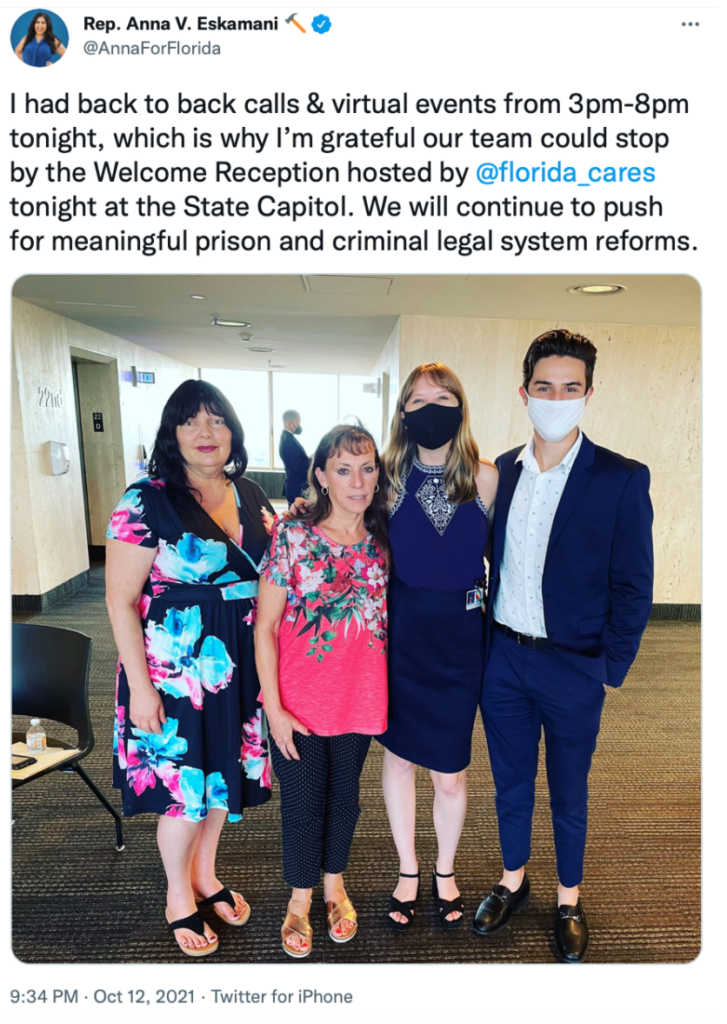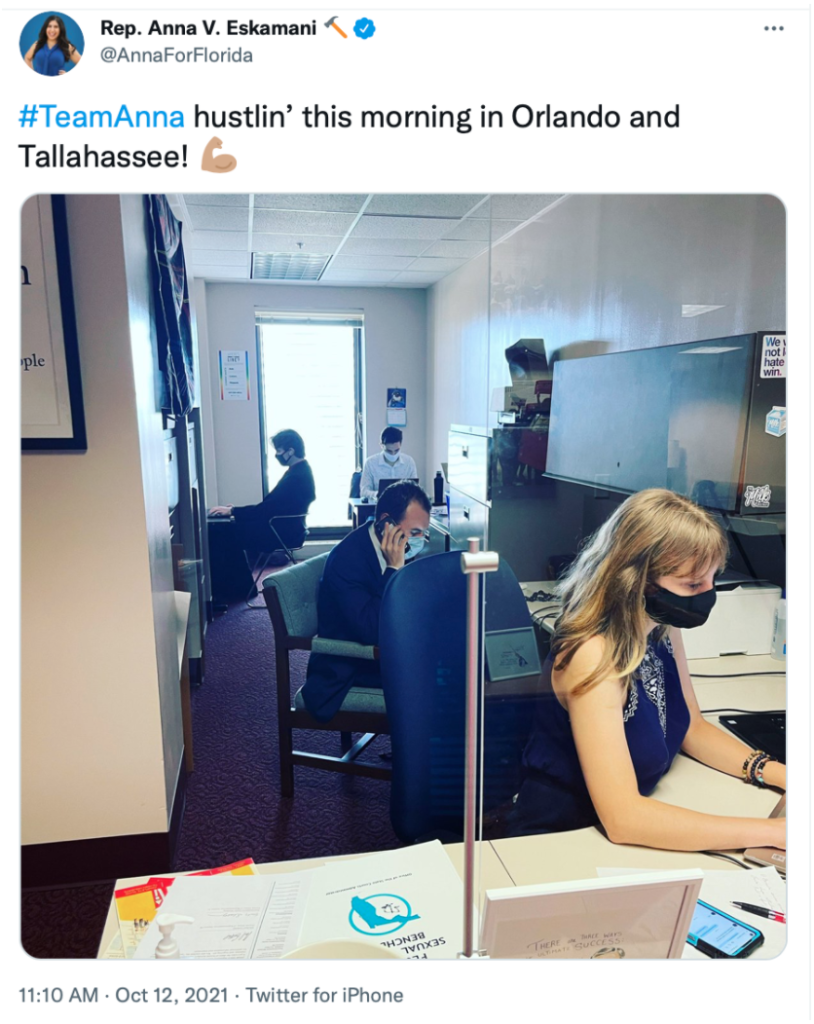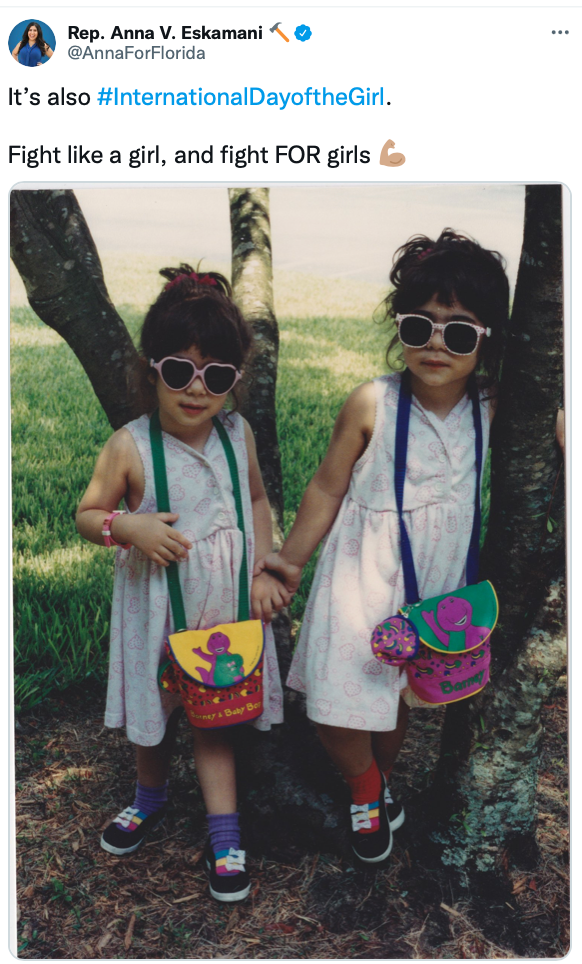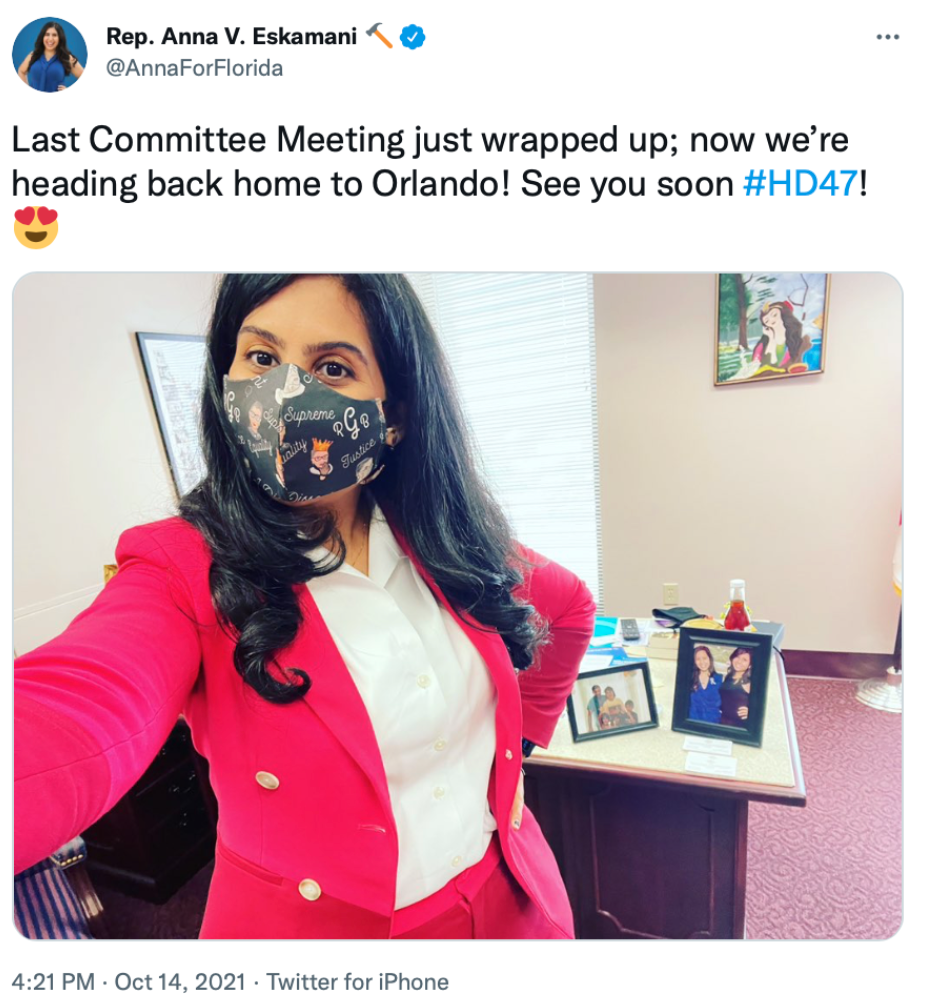Dear Friend,
This past Thursday night I returned from Tallahassee for our second week of Committee Meetings ahead of the 2022 Legislative Session. I’m already heading back to Tallahassee for our third week, but, in the meantime, scroll down to read our Week 2 Tallahassee Committee Weeks Update.
Remember: Our Legislative Updates are thorough, but will never be all encompassing. Be sure to keep up to date with us in real time via Facebook, Instagram, Twitter, and YouTube. You can also watch Committee Meetings live at The Florida Channel.
Onward,
Rep. Anna V. Eskamani
REDISTRICTING UPDATE
We told you in our last update that the Legislature has begun the once-a-decade redistricting process.
This the process by which we redraw the boundaries of our Congressional and legislative districts, and it is vitally important. Previous Legislatures have used redistricting to draw gerrymandered districts that pack lots of Democratic voters into a small number of seats while spreading Republican voters more evenly across many more; this is how the Republican Party of Florida can capture huge majorities of seats in the Florida House of Representatives in an otherwise evenly divided state like Florida.
But we’re also getting troubling signs that Tallahassee leaders are trying to freeze the public out of this process.
Leaders of our redistricting committees said last week that they may not even bother to hold hearings around the state, making it much harder for everyday folks to provide their own input. And while they will allow members of the public to submit comments and proposals online, they haven’t even committed to reviewing the submissions they get.
Some of my Democratic colleagues last week urged Republican leaders to at least conduct virtual public hearings to solicit feedback from members of the public.
There are also two redistricting subcommittees in the House: One to draw new Congressional districts, the other two draw new districts for the state Legislature. And yet, once again, the two committees met simultaneously last week, making it impossible for anyone to participate in both.
FLORIDA IS SHORT MORE THAN 5,000 TEACHERS
Florida’s teacher shortage has worsened since the start of the school year, with vacancies for teachers surging to more than 5,000, according to updated data from the Florida Education Association. There are also more than 4,000 openings for other school staff positions, according to FEA President Andrew Spar.
If you ask me, this is due to low pay and COVID19 safety measures being politicized by our Governor and the Department of Education. We need to pay all of our public employees better and bring down all federal money to help our schools be safe — not defund and attack school board members who are just trying to do what’s right.
SCRUTINIZING THE FLORIDA LOTTERY
We’ve been appointed to a new committee this year! It’s called the Joint Legislative Auditing Committee — which sounds dry but it’s actually really important. The committee, which includes members from both the House and Senate, is designed to provide continuous oversight of government operations across Florida, primarily through the state Auditor General and the Legislature’s Office of Program Policy Analysis and Government Accountability (which most people just call OPPAGA).
We had our first meeting last week and one of our actions was to order an audit of the Florida Lottery now sells nearly $10 billion a year worth of Lottery tickets.
The Lottery is audited every year, but this time I encouraged my colleagues to make sure we really dig in and understand just where this money is coming from – and whether our Lottery is, intentionally or not, preying on low-income areas, people with lesser levels of education, or predominantly Black and brown communities.
There’s a lot of academic research out there that suggests state lotteries are essentially an upward transfer of wealth –- taking money from lower-income folks and using it to pay for benefits that are used more by middle- and upper-income folks. Two years ago, analysts at our own OPPAGA crunched the data and found that Florida residents spent more on lottery tickets in parts of the state where a larger percentage of adults were Black, living in poverty, or had lower education levels. (I also encourage you to read this report yourself – particularly Appendix E.)
One of my concerns with some of the reports produced by the Florida Lottery itself is that it doesn’t study this issue in enough depth itself. Many of its reports only look at the demographics of players who play at least once a month – treating someone who buys one ticket every 30 days the same a someone who buys five tickets a day.
As responsible policymakers, we should know *far* more about the heaviest users of the Florida Lottery. And I’m hoping to use my new seat on the Joint Legislative Auditing Committee to help figure that out.
PRESENTATION ON TRANSPARENCY FLORIDA
Also during the Joint Legislative Auditing Committee meeting, we had a presentation on how to use TransparencyFlorida.gov. This website was created to provide the public with access to state government spending information by posting Florida’s operating budget and associated expenditure records online. You can even search specific vendors and see how much public money is spent on state government contracts. Click here to watch the meeting and get a tutorial. Just fast forward to the 33 minute mark.
PRESENTATION ON INFANT MORTALITY
Back in Professions & Public Health Subcommittee we honed in once more on infant mortality and what steps the state can take to improve the health and well-being of new parents and their children. The focus of this presentation was also on Opioid Use Disorder (OUD), which is a life-threatening chronic condition and is dangerous to pregnant and postpartum women. We heard from leaders at Healthy Start and Dr. William Sappenfield who serves as Director of the Florida Perinatal Quality Collaborative at the University of South Florida. Key takeaways from our conversation was the importance of social determinants of care — it’s not just about a person having health care coverage, it’s also about their ability to afford housing, food, transportation and other societal variables.
Remember, you can always watch live and re-watch committee meetings online at the Florida Channel.
ONE OF THE MOST IMPORTANT STATE AGENCIES YOU MIGHT HAVE NEVER HEARD OF
While it has an unwieldy name, the Department of Business and Professional Regulation (DBPR) just might be the most important state agency you’ve never heard of.
It oversees millions of businesses and professionals across the state –- from veterinarians to real-estate agents, hair salons to poker rooms, craft breweries to timeshares. It does everything from inspecting hotels and restaurants to issuing alcohol and tobacco licenses.
In fact, one of the most common constituent services our office provides is helping the small businesses owners of House District 47 work with DBPR and navigate through the red tape. In our Regulatory Reform Subcommittee (where I serve as Ranking Member) we had a fantastic presentation from DBPR with good questions asked along the way too. Click here to watch the meeting and know our office is always here to help cut through that red tape!
FLORIDA’S ELECTIONS HAVE ALREADY BEEN AUDITED– AND THEY WERE SECURE
Our former president and his enablers have spent months cynically trying to undermine people’s confidence in American elections, all to create cover for draconian laws that make it much harder for folks to vote – and in some cases even give politicians the power to throw out election results they don’t like.
But the truth is our elections are secure. In fact, Florida Secretary of State Laurel Lee – a Republican appointed by Gov. Ron DeSantis –- told a Florida Senate committee last week that Florida has already conducted an audit of last year’s elections.
“We have already completed an audit of all 67 counties,” she said. “And that audit demonstrated an exceedingly high level of election integrity and, again, demonstrated that our results were accurate, reliable.”
Perhaps the people who say they are concerned about election integrity could focus on solving real fraud – like ghost candidates, dark money groups buying elections on behalf of big corporations, and vulnerable exploited as front names for bogus political committees.
IT MAY BE TIME TO RETHINK PROPERTY INSURANCE IN FLORIDA
There’s a property insurance storm brewing. The head of Citizens Property Insurance Corp. -– the state-backed insurance company for home and business owners who can’t find affordable policies from private insurers -– told a House committee last week that private insurance companies are swimming in a “sea of red ink” and that the financial problems are affecting virtually the entire industry.
As a result, Citizens has seen enormous growth in recent years, as more private companies have jacked up their own rates or dropped customers altogether. According to the Tampa Bay Times, Citizens had more than 700,000 policies as of Sept. 30 –- up nearly 200,000 over the past year. And the state-backed company said it could reach 1 million policies by next year.
Private insurers are struggling, and Citizens is growing, despite year of the Florida Legislature passing insurance laws that were written largely by private industry lobbyists. These laws have allowed private companies to offer lesser coverage while charging higher prices, made it harder for consumers to get claims paid when their homes or businesses are damaged, and forced Citizens to raise its own rates to stratospheric heights. We keep being promised that these anti-consumer changes will make Florida more attractive to private insurance companies, drawing more of them in and creating competition that will ultimately lead to lower prices and better products for homeowners.
That hasn’t happened, obviously. And yet already there is talk by some industry lobbyists that we just need to cut more consumer protections and leave Floridians at the mercy of even more-loosely regulated “surplus lines” insurance companies and that will somehow fix things.
That is not the answer. Now, insurance is obviously wickedly complicated, and I don’t pretend to know all the answers myself. But it’s becoming quite clear that we need to start listening to someone other than insurance industry lobbyists whose only concern is for their employers’ profits.
Years ago — after the hurricanes of 2004 and 2005 devastated Florida, caused many insurance companies to collapse and the rest to raise their rates to unaffordable levels –- there was a push by some lawmakers on both sides of the aisle to let Citizens itself cover more Floridians.
Instead of forcing Citizens to charge artificially expensive rates and preventing many Floridians from enrolling in it at all, the idea was to let Citizens compete with private companies all around the state. Any Florida home or business owner could choose to buy a policy from Citizens if Citizens was offering a more comprehensive policy at a more affordable rate than private companies were.
In addition to helping to keep insurance affordable for Floridians, this would also allow Citizens to build a bigger, more diverse base of policyholders — spreading out its risk and reducing the chances that it would be bankrupted by a single major hurricane.
Maybe that’s an idea worth reconsidering this session.
PREVENTING HATE CRIMES & PROTECTING TRANS KIDS
We were proud to attend two events this week in support of efforts to protect some of the most vulnerable people in our communities.
On Tuesday, we joined a coalition of advocates in support of “Maura’s Law,” which expand Florida’s hate-crime law to cover attacks motivated by a victim’s gender, gender-identity or any kind of disability. It’s named after Maura Binkley, a Florida State University student who was one of the women killed in a 2018 mass shooting at a Tallahassee yoga studio by a shooter who had expressed hatred towards women. This legislation has been filed as HB 111 in the House by Rep. Joe Geller (D-Aventura), and SB 308 in the Senate by Sen. Lori Berman (D-Delray Beach).
Two days later, we stood in solidarity with the Florida Coalition for Trans Liberation, calling on our Republican colleagues to repeal the shameful law they passed last year that bans transgender youth from participating in school sports.
We are also urging our colleagues to pass a new law that would allow Floridians to choose a non-binary gender designation on their driver’s license. I’m a proud co-sponsor of this bill, which is HB 249 in the House and sponsored by Rep. Kristen Arrington (D-Kissimmee). The Senate version is SB 456, and it’s sponsored by Sen. Victor Torres (D-Kissimmee).
CONFRONTING CLIMATE CHANGE & ENDING FLORIDA’S ADDICTION TO FOSSIL FUELS
Joined by environmental advocates from organizations like Florida Conservation Voters and the CLEO Institute, Sen. Lori Berman (D-Delray Beach) and I hosted a press conference on Thursday to highlight our legislation to confront our climate crisis head-on by ending Florida’s dependence on fossil fuels.
House Bill 81 / Senate Bill 366 would transition Florida to 100 percent renewable energy sources by 2040 and carbon neutrality by 2050. It would also ban fracking
But it’s also an economic-stimulus bill. The legislation would establish a new workforce board charged with fostering the growth of new high-paying, clean-energy jobs that would strengthen and diversify Florida’s economy – something that’s especially important following the loss of so many jobs during the COVID19 pandemic.
It wasn’t our only climate action last week. We also joined with women lawmakers from around the country for a virtual event to emphasize the importance of enacting state-level legislation to confront climate change.
NEWS BILLS FILED TO PROTECT VULNERABLE PEOPLE
We filed two new bills last week.
In an effort to reduce violence against Asian Americans, HB 281 would require Florida public schools to teach Asian American and Pacific Islander history to students. Incidents of Asian-American hate, violence and discrimination have spiked during the COVID19 pandemic, stoked by people like our former president.
Required topics to be taught would include the role Asian Americans have played in advancing civil rights and the contributions Asian Americans have made in government, the arts, sciences, economics and politics. Florida could become the second state to require the teaching of AAPI history, after Illinois, which enacted a similar law in July.
Asian American history is American history. And yet for far too long, the contributions of the AAPI community in Florida and throughout the country have been invisible. Instead, there’s been a rise of hate towards Asian-Americans, and our hope with this legislation is to combat that hate with education and empathy.
The Senate companion bill, SB 490, is sponsored by Sen. Linda Stewart (D-Orlando).
We also re-filed legislation to keep guns out of the hands of domestic abusers, which will save countless women and family members from becoming potential victims.
Federal gun laws already protect women from domestic abusers by prohibiting gun possession for people convicted of a “misdemeanor crime of domestic violence” or subject to a final domestic violence restraining order. But but dangerous gaps and weaknesses in the system remain at the state level.
Our bill, HB 83, would close those gaps by requiring a person convicted of a misdemeanor offense of domestic violence to immediately surrender (upon conviction) all firearms and ammunition in his or her possession to law enforcement. It would also give more authority to law enforcement to temporarily remove firearms from a home when reporting to a scene of domestic violence.
The Senate companion is Senate Bill 372, sponsored by Sen. Lori Berman (D-Delray Beach).
Nearly one in four women and one in seven men will experience severe physical violence at the hands of their intimate partner in their lifetime, according to The Educational Fund to Stop Gun Violence. And the United States is the most dangerous country in the developed world for gun violence against women, with women in this country are 16 times more likely to be killed with a gun than women in other high-income countries, according to the National Partnership for Women and Families.
It is past time that the Florida Legislature takes action to address the link between gun violence and intimate-partner violence. If we don’t pass this legislation, more lives in Florida will be lost.
MANATEES ARE STARVING TO DEATH
This breaks my heart: A top state wildlife official told a House committee last week that nearly 1,000 manatees have died in Florida so far this year – from a population of less than 9,000. Many of the deaths have been linked to poor water quality along East Coast of the state; the seagrass beds where manatees forage for food have declined so much that many of the animals are starving to death.
The Florida Fish and Wildlife Conservation Commission’s Fish and Wildlife Commission is asking for nearly $7 million from the Legislature for a program to rebuild those seagrass beds – and save manatees.
Here’s hoping my colleagues choose to support programs like this rather than wasting more money on corporate tax breaks for businesses like Walt Disney World and Full Sail University.
HONORING INDIGENOUS PEOPLE
Last Monday, Florida recognized Columbus Day, a federal holiday commemorating the 1492 arrival of Christopher Columbus in what is now called North America – which led to colonization of the country that would become the United States but also genocide against the indigenous populations that already lived here.
But a growing number of cities, counties and states are choosing to replace Columbus Day for a new holiday: Indigenous Peoples Day, in honor of the million people, and their cultures, who were displaced and destroyed by European colonizers.
Florida should do this, too.
WHY LOCAL ELECTIONS MATTER
I also wanted to draw your attention to this: City commissioners in Tallahassee last week voted unanimously to launch a legal challenge against HB 1, the unconstitutional, anti-protest law that the Florida Legislature passed last year meant to make it harder for people to organize and demonstrate. Tallahassee became the ninth city in Florida to challenge this grotesque, authoritarian-style law, which was was championed by Gov. Ron DeSantis following the Black Lives Matter movement, in yet another example of pandering to Trump and OANN.
It’s a good reminder that local governments – and local elections – are every bit as important as state government and elections. And we have some big local elections coming up here in Orlando, including three city commission races that overlap with our House District 47.
Nicolette Springer, whom I was proud to endorse earlier this month, and Sam Chambers are both challenging Robert Stuart, the incumbent commissioner in District 3, which overlaps extensively with House District 47.
Meanwhile, Sunshine Grund and Bill Moore are challenging Jim Gray, the incumbent commissioner in District 1. And Shaniqua Rose is challenging Regina Hill, the incumbent commissioner in District 5.
Early voting begins Oct. 25. Election Day is Nov. 2.
THE WEEK IN PICTURES
Lastly, here are a few sights and scenes from the past week from your HD 47 Team, including celebrating Hispanic Heritage Month.
